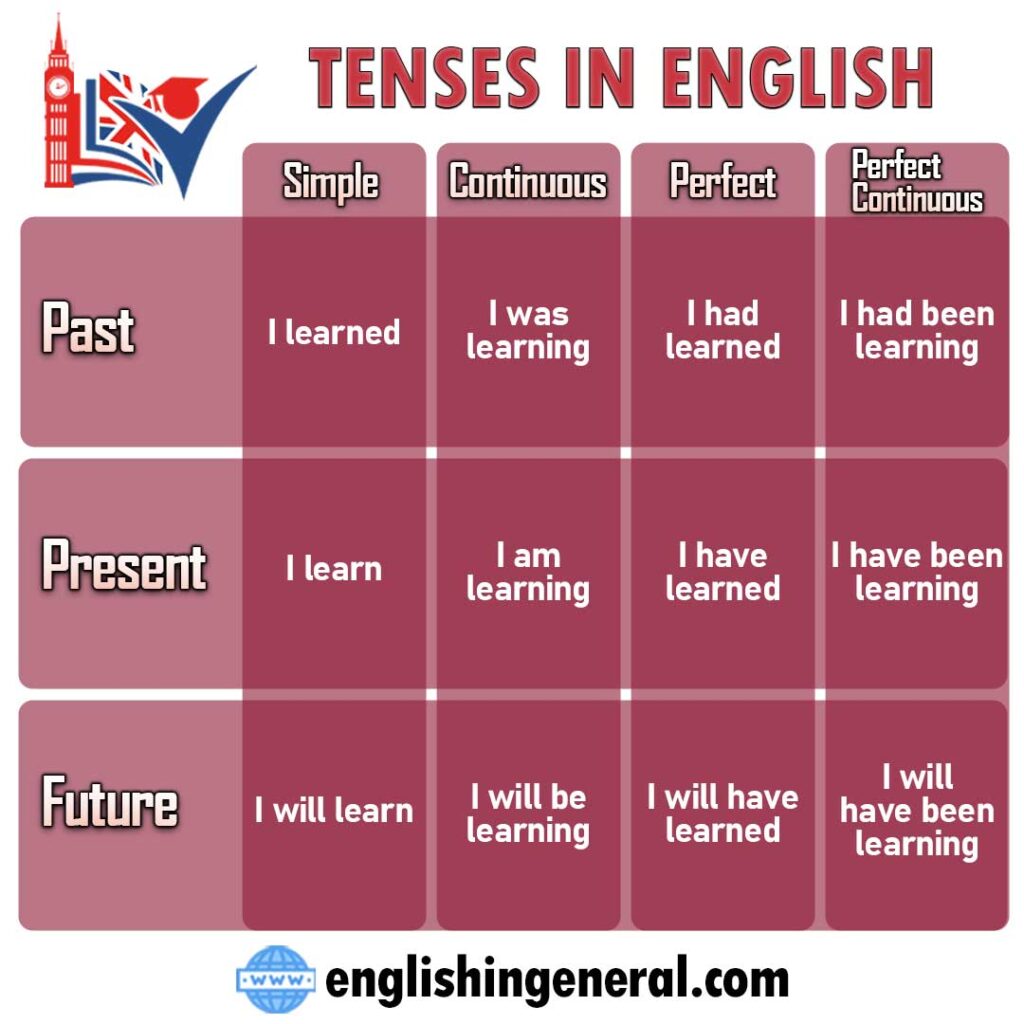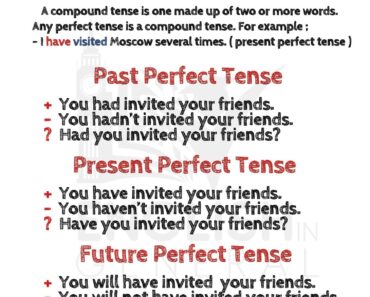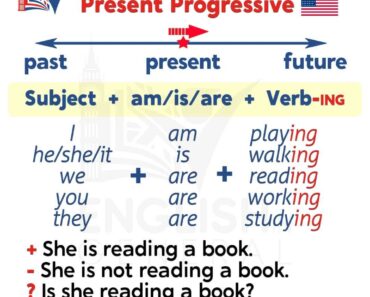
In the English language, there are basically three different tenses – present, past, and future. They are called Tenses in English and are each divided into simple and continuous forms (ing form).
Sometimes these tenses have very different meanings. In general, it helps to pay attention to common signal words.
In the following examples, the sentences are simple and continuous. A general distinction is made between the possibilities to express the present, and in particular the times of the present:
Present Tenses:
Present Simple:
“Thomas plays hockey every day.”
“Tamara is reading a novel at the moment.” (Tamara is reading a novel.)
Present Perfect:
“We have visited a lot of places all over the world.” (We have visited many places around the world.)
“They have been waiting for hours.” (They’ve been waiting for hours.)
Present Progressive:
Trisha is cooking dinner.
Mandy is climbing the tree.
Present Perfect Progressive:
Amanda has been reading her book for one month every day.
Mary has been writing her romance for two years every week.
… the possibilities to express the past, and in particular the times of the past:
Past Tenses:
Past Simple:
“Some of my friends went to a vernissage yesterday.” (A couple of my friends went to a vernissage yesterday.)
“You were waiting for the bus at 2 pm.” (You were just waiting for the bus at two o’clock.)
Past Perfect:
“Peter had sold his bike long before.” (Peter had sold his bike long before.)
“Kids had been waiting for over an hour.” (Kids had waited over an hour.)
Past Progressive:
Alisha was singing a song.
Thomas was playing the guitar.
Past Perfect Progressive:
Harry had been visiting this club for one year every Saturday.
Johnson had been running for five years every day.
… the possibilities to express the future, and especially the times of the future:
Future Tenses:
Future Simple:
Mother is going to do yoga every week.
Dad is going to play golf every Sunday.
Future Progressive:
“I’ll help you.” (I’ll help you.)
“Arielle will be speaking soon.” (Arielle will speak shortly.)
Future Perfect:
“Carry will have travelled at least 20 countries when she turns 30.” (By the time Carry turn 30, She’ll have travelled at least 20 countries.)
“By the end of this year, Larry will have been working here for 20 years.” (By the end of the year, Larry will have worked here for 20 years.)
Future Perfect Progressive:
Aysha will have been singing every Saturday.
Elsa will have been working here every Sunday.


